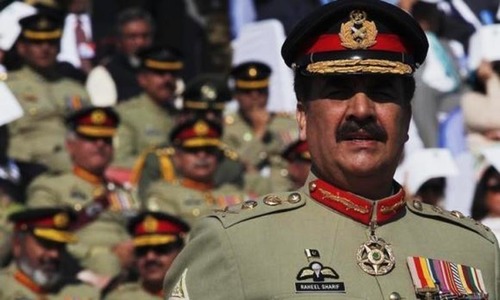Has India’s army revived its ‘Cold Start’ doctrine?
NEW DELHI: Recent remarks by India’s new army chief General Bipin Rawat have raised questions if the country has revived its controversial ‘Cold Start’ doctrine for any future standoff with Pakistan, leading analysts wrote in The Hindu on Thursday.
Gen Rawat had told India Today last week that the doctrine — instituted after a terrorist attack on Indian parliament in December 2001 — still existed.
“The Cold Start doctrine exists for conventional military operations. Whether we have to conduct conventional operations for such strikes is a decision well-thought through, involving the government and the Cabinet Committee on Security,” he said in the interview.
Prime Minister Narendra Modi had, in the combined commanders’ conference in 2015, said that future conflicts would become shorter, and wars would become rare. Did Gen Rawat have any strategy for short, intense wars?
“In our case, we prepare for short, intense conflicts, and at the same time have to be prepared for wars becoming long-drawn. Based on that, we have a well-defined strategy. What the PM said is right; wars will be intense and short because there’ll always be international pressure in wars between two nations. We have to be aware of that; whatever action we take, therefore, has to be quick; forces have to be ready and have to achieve success.”
In their analysis, Walter C. Ladwig III, lecturer in international relations at the Department of War Studies, King’s College, London, and Vipin Narang, an associate professor of political science at the Massachusetts Institute of Technology, said the reference to ‘Cold Start’ raised vital questions. What did Gen Rawat mean by the phrase and was he “authorised to speak on the matter by the government?”
Many defence analysts presumed the army had abandoned this limited war concept altogether, or narrowly focussed on streamlining mobilisation while still maintaining the fundamental Strike Corps organisation and doctrinal concept, the analysts said.
“Either Gen Rawat has dispensed with 15 years of semantic gymnastics and simply referred to these “proactive strategy options” by their more common nomenclature, Cold Start, or, the Indian Army has been quietly reorganising its limited war concept along more aggressive, and offensive, lines with little fanfare.”
The Hindu’s analysis said the government should clarify Gen Rawat’s statements. “Ambiguity surrounding Cold Start, which incurred real diplomatic and security costs for India without delivering deterrence benefits, did not advance the country’s interests when it was first announced, and such uncertainty is unhelpful today.”
Published in Dawn, January 13th, 2017















































